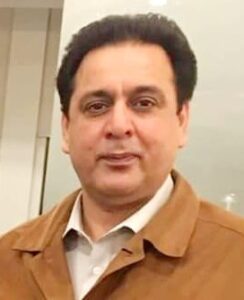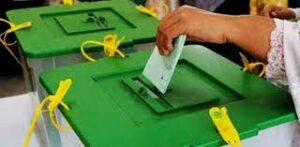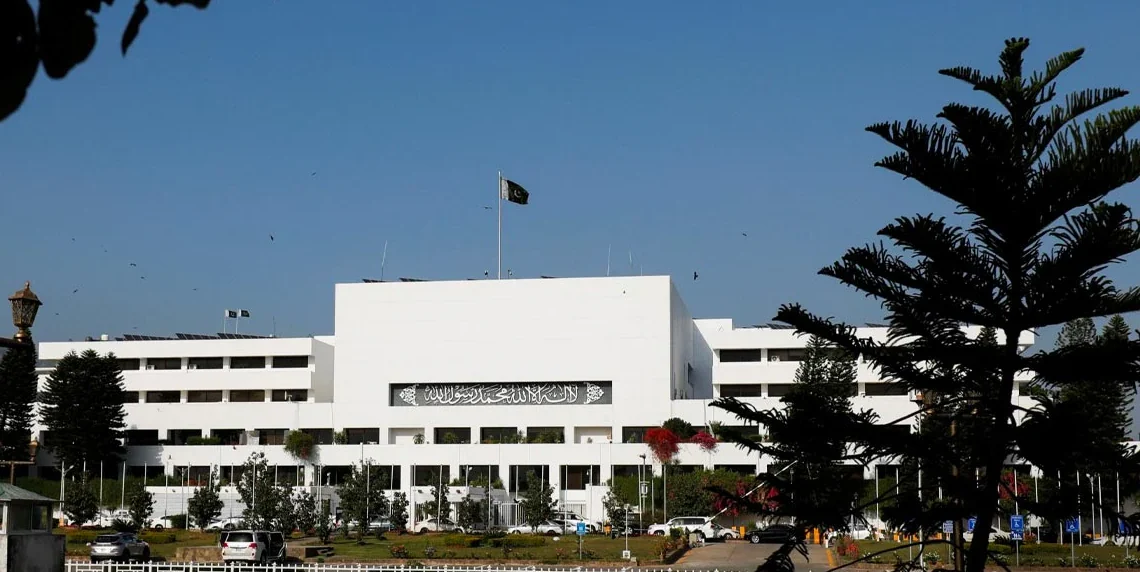
By Raja Amer Iqbal
Pakistan deteriorating economic scenario was hoped to be improved after the national election 2024, but the split mandate and unprecedented rigging allegations have worsened the situation. Defying of the mandate sentiments are simmering through political protests organised almost every day in different parts of the country, exposing the credibility of the 2024 elections. PTI backed independent candidates emerged as the single largest group in the national assembly despite all pre poll legal restrictions.
Pakistan from the beginning adopted flawed democratic norms at all echelons of the command. The first governor general of the country imposed urdu as national language against the aspirations of the majority of the people. The first president abrogated the 1956 constitution and imposed the martial law in 1958.
The first military dictator introduced his tailored made constitution in 1962 and through local bodies’ elections propelled his regime.
Then we saw the first national election on the equal representations basis in 1970. The party who won 165 national assembly seats was denied the right to make the government in the centre. And party with 82 seats, the Pakistan people party made the national government after the fall of the Dacca in 1971, and Zulfiqar Ali Bhutto became the first civilian chief martial law administrator and president in the country.
In 1973, the parliament passed a parliamentary bicameral constitution.
Afterwards, Pakistan went through another military coup d’etat of Gen Zia ul haq in 1977, which ended in 1988 with the plane crash. This is followed by the four civilian governments of Benazir Bhutto’s PPP and Nawaz Sharif PMLN as a result of four national elections held between 1988 and 1999. None national assembly succeeded in completing their constitutional tenure of five years. All elections by and large were declared rigged, and all governments were labelled with corruption charges and allegations, and no political leadership tried serious efforts to follow the democratic norms rather involved the establishment to get into the power corridors. These elections strengthen the hereditary politics in the country.
In october 1999, Gen Perviaz Musharaf took power in a military coup d’etat. President Perviaz Musharaf handed over the power in August 2008 to avoid the impeachment against him in a joint parliamentary session.
In the 2008 general election, PPP made a coalition federal government after the sad assassination of Benazir Bhutto and Asif Ali Zardari became the president of the country.
In 2013, Nawaz Sharif was elected as prime minister for the third time. As a result of 2018 elections, Imran Khan became the prime minister. Although all four previous elected national assemblies between 2003 and 2023 have completed their constitutional five years tenure, unlike in the past , none prime minister succeeded in completing five years in the office. Almost all elections were declared rigged and controversial publicly called RO and RTS failed elections.
In recent past Pakistan witnessed a hybrid governance model where the involvement of judiciary and establishment became inevitable and uncontrolled brought negative impact on people’s confidence in democracy.
Now, 2024 elections have brought the country to a point where it is becoming difficult to form stable federal government unless all leadership of political parties,establishment and judiciary joint hands on non partisan basis to promote only the national interests and evolve workable norms of governance system based on independent neutral unbiased parameters acceptable to all the stakeholders.
Unless a consensus is evolved, the economic indicators of Pakistan can not be improved as political and economic stability are two faces of the same coin.
Pakistan’s economic journey is also full of exceptional and inconsistent spikes, mostly due to external factors. Pakistan, like weak democratic norms, inherited a nominal manufacturing base in 1947 at the time of independence. After joining the SEATO in 1954 and CENTO in 1955, a lot of foreign direct investment and aid assistance poured into Pakistan. The big hydro power generation dams like Tarbela and Mangla were constructed along a few other mega projects launched beside many multinational companies entered the Pakistan market. Corporate culture was encouraged through government economic and industrial policies, specifically in west Pakistan. As a result, the country few local companies also grew into big corporations like BEO “Batala Engineering Company,” the premier of people republic of China once visited in person to witness their managerial economics.
Influx of foreign exchange and transfer of technology along a low energy prices brought positive ramifications on overall economic activities inclusive of the agriculture sector.
This upward economic trend was initially derailed due to the Pakistan India war in 1965 and exacerbated at the time of fall of the Dacca in 1971 and further aggravated in the first regime of Pakistan people party “PPP” due to their nationalisation policy which involved bureaucracy into the businesses realm and promoted the culture of permits and quotas in the country. The manufacturing sector in Pakistan became quite difficult and incompetent.The converted state owned enterprises through nationalisation started making losses due to lack of business professionalism.
Gen Zia and Gen Musharaf eras saw an influx of a lot of foreign exchange plus aids and FDI due to their active part in alliances against the Soviet Union invasion in Afghanistan in the 1980s and in the USA war against the Talban government between 2002 till 2022.This paved the easy flow of foreign loans through IMF, World Bank, and multilateral donors etc continued on the behest of USA.
In the 1990s, privatisation drive and government initiatives to open the economy to attract FDIs promoted a systematic SROs culture in the country. This approach ultimately aggravates the existing anomalies due to preferential treatments given to few sectors like textiles, fertiliser, sugar and automobile, etc. Leaving most of the other industrial sectors on the mercy of the market mechanisms making them mostly incompetitive due to high cost of doing business in Pakistan like ever increasing prices of electricity, gas and petroleum products beside inefficient workforce, high interest rate, vulnerable exchange rate, scarcity of financial resources, lack of consistency in economic policies, vulnerable law and order situation, unfavourable FTA and PTA signed made import more viable rather to manufacture, increasing poverty level hammering the demand side, parallel black economy, Afghan transit trade and many other factors.
The sectors like pharmaceutical, cement, construction, agriculture based industry for example fruits and vegetables, paint, furniture, poultry, livestock, etc, are going through up and down trends due to lack of government interest in resolving their real economic issues.
Unfortunately, those who matter in our contemporary governance system are mostly ignorant of economic reality on the ground and are not well versed in economics and are mostly dependent on bureaucracy, whose competency and capacity is already compromised due to institutional politicisation and malpractices. Subjectivity has taken over the place of objectivity in the desired advice and recommendations.
Most parliamentarian lack proper economic educational qualification and practical experience to understand the implications and complexities of economic policies at the domestic and international level.
In such a scenario, the brain drain and despondency among the educated youth and deteriorating health and educational services in the country are some of the daunting challenges for the incoming federal government.
To revive economic development based on sustainability, the incoming government must develop consensus on economic issues across the board, inclusive of all stakeholders and political parties. All the stakeholders must try to establish harmony on addressing economic challenges in the best interest of Pakistan.
This is possible if economic issues are dealt with on a non-partisan basis through the charter of economy drafted in consultation with all stakeholders and passed in parliamentary legislation.
The incoming federal government must adopt austerity and discourage all non productive expenditures besides promoting meritocracy and transparency in their governance. They must evolve workable mechanism to gap up the existing differential treatments given to a few sectors without creating any disruption in the inflow of foreign exchange into the country. The manufacturing and IT sectors need to be prioritised to encourage the exports in order to curb the twin deficits and to facilitate long-term strategy to pay back the external debts. Similarly, CPEC phase 2 needs to be harnessed at the earliest and try to establish inroads into the Chinese supply chain. The agriculture sector needs to improve through the adoption of modern technologies not only to ensure national food security but to enhance the export basket flexibility.
In the world democracy is meant to enhance the solidarity and integrity of the country. Unfortunately, in our country, a hybrid democratic system is used just to cover up the legitimacy of the government. Let’s hope and pray that our political leadership emerged to overcome the existing economic crisis. The only option and way forward for Pakistan. (The writer is economic analyst, businessman, and served as President RCCI 2016-17)


